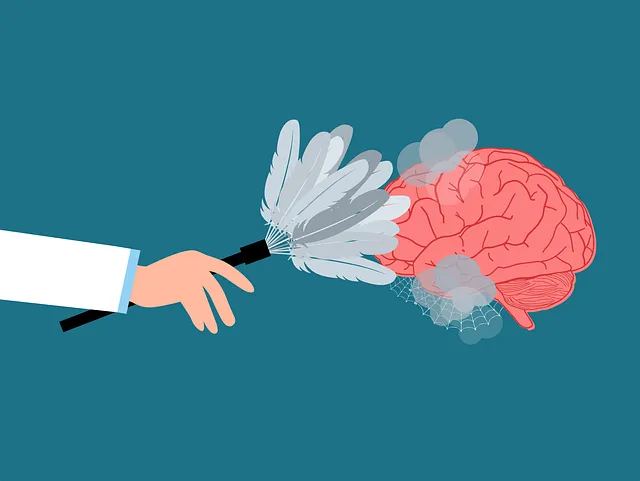Kaiser Permanente behavioral health providers in Northglenn prioritize cultural competency training to offer sensitive and tailored care to diverse patients. Through interactive workshops, they learn to navigate cultural nuances, adapt communication styles, and understand unique mental wellness factors within different communities. This holistic approach fosters an inclusive environment, improves patient engagement, reduces disparities, and enhances treatment outcomes for all mental health journeys. Programs like Compassion Cultivation Practices, combined with well-designed education, ensure continuous learning and better serve the diverse community.
Cultural competency training is a vital component of modern healthcare, especially within behavioral health services. This article explores the significance of cultural sensitivity for Kaiser Permanente behavioral health providers in Northglenn, offering a unique perspective on improving patient care. We delve into their comprehensive training approach and examine strategies to implement and evaluate effective cultural competency initiatives. By understanding diverse cultural contexts, these programs foster more inclusive and accessible healthcare environments.
- Understanding Cultural Competency in Healthcare: Why It Matters for Behavioral Health Providers
- Kaiser Permanente Northglenn's Approach to Training for Cultural Sensitivity
- Implementing and Evaluating Effective Cultural Competency Strategies in Behavioral Health Care
Understanding Cultural Competency in Healthcare: Why It Matters for Behavioral Health Providers

In the healthcare sector, cultural competency goes beyond basic language translation. It involves understanding and appreciating the diverse cultural backgrounds, beliefs, and values of patients, especially in behavioral health settings. For Kaiser Permanente behavioral health providers in Northglenn, this means creating an environment where every patient feels seen, heard, and respected. Cultural sensitivity in mental healthcare practice is crucial as it helps to reduce disparities in care, improve patient engagement, and enhance treatment outcomes.
The Mental Wellness Podcast Series Production highlights the importance of cultural competency by showcasing stories from diverse communities, emphasizing the unique challenges and strengths that shape their mental wellness journeys. By embracing this approach, Kaiser Permanente’s behavioral health providers can better navigate complex cultural landscapes, foster stronger therapeutic alliances, and ultimately provide more effective care tailored to each patient’s individual needs and perspectives.
Kaiser Permanente Northglenn's Approach to Training for Cultural Sensitivity

Kaiser Permanente Northglenn takes a holistic approach to cultural competency training, recognizing that effective care requires understanding and empathy. Their program focuses on empowering Kaiser Permanente behavioral health providers in Northglenn to connect with patients from diverse backgrounds. Through interactive workshops and ongoing learning sessions, staff learn to navigate cultural nuances, adapt their communication styles, and deliver culturally sensitive care tailored to individual needs.
This training goes beyond surface-level awareness, delving into the complex factors influencing mental wellness across different communities. It equips professionals with essential tools for risk assessment in diverse populations, fostering resilience both within themselves and their patients. By prioritizing cultural sensitivity, Kaiser Permanente Northglenn aims to create a more inclusive environment, ensuring every patient receives personalized support for their mental health journey.
Implementing and Evaluating Effective Cultural Competency Strategies in Behavioral Health Care

Implementing cultural competency training is a vital step for Kaiser Permanente behavioral health providers in Northglenn to ensure they offer culturally sensitive and inclusive care. Effective strategies, such as Compassion Cultivation Practices, go beyond superficial awareness to foster genuine understanding and empathy towards diverse patient backgrounds. By integrating these practices into the fabric of their work, healthcare providers can create a safer and more welcoming environment, leading to improved patient outcomes.
Evaluating these strategies is crucial using well-designed Mental Health Education Programs that measure both provider knowledge gain and behavioral changes in delivering care. This includes assessing improvements in communication strategies, which are essential for building trust and rapport with patients from varied cultural backgrounds. Through continuous learning and adaptation, Kaiser Permanente’s Northglenn behavioral health team can enhance their ability to provide culturally competent care, thereby better serving the diverse community they serve.
Cultural competency training is a game-changer for Kaiser Permanente’s behavioral health providers in Northglenn. By understanding and appreciating diverse cultural backgrounds, these professionals can significantly enhance patient care. As highlighted in this article, implementing structured training programs, such as those modeled by Kaiser Permanente Northglenn, equips caregivers with the skills to navigate complex cultural landscapes, ultimately fostering more inclusive and effective treatment environments for all patients within the behavioral health sector.






